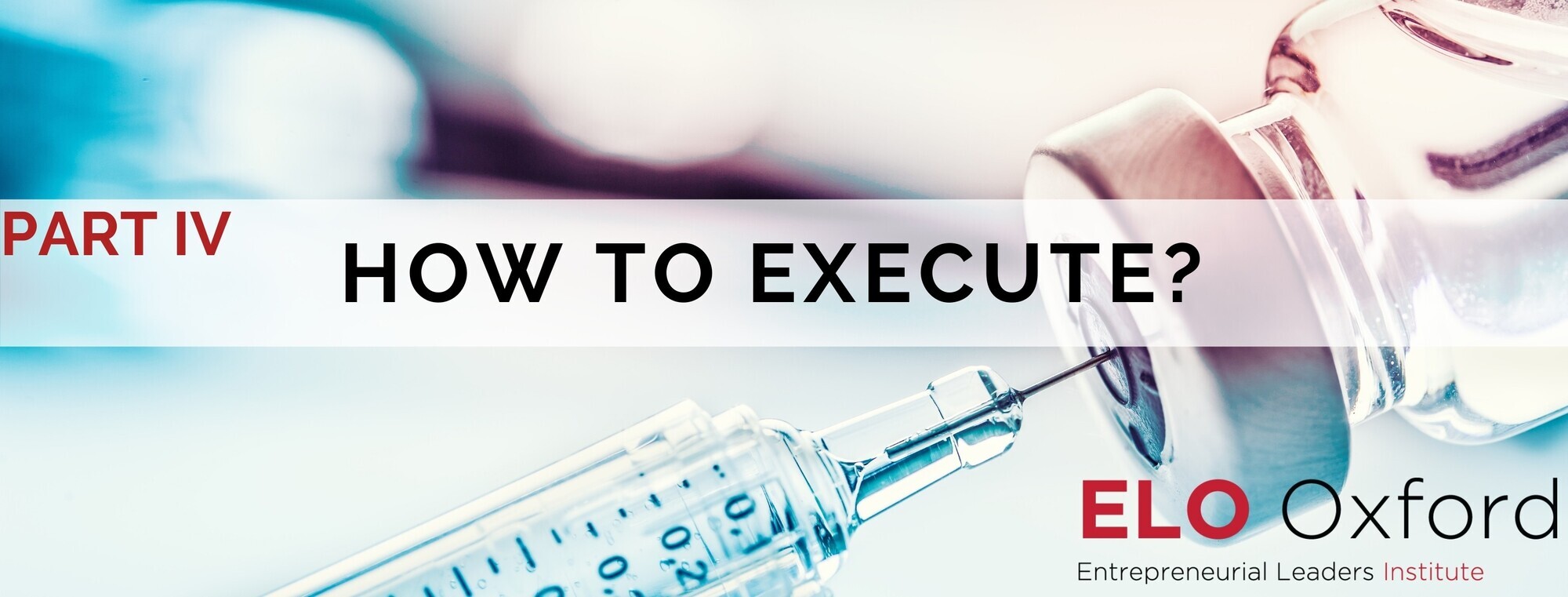This series of four blog posts focus on the entrepreneurial story of how the University of Oxford invented a COVID-19 vaccine and entered into a partnership with AstraZeneca to distribute 3 billion doses globally. This year’s ELO Oxford Entrepreneurial Leaders Programme will include a case study of the development and roll-out of the Oxford AstraZeneca Vaccine and the lessons on innovation and entrepreneurship to be learned for global business leaders. The ELO Oxford cohort will get first-hand insights into how to go from idea to opportunity to then impacting the world. This is one of the most important stories of the COVID pandemic. We will be at the epicentre of this success story.
ELO operates the “Entrepreneurial Leaders Programme” in collaboration with Wycliffe Hall, University of Oxford. This is a one-week intensive executive education offering each August for Christian marketplace and entrepreneurial leaders from around the world. ELO believes there is no better place in the world for this type of offering. Oxford offers an amazing combination of culture and history along with one of the leading universities in the world. The current COVID-19 pandemic and the race to find a vaccine has raised the profile of the University even higher.
The four blog posts will successively answer these questions:
Part I - How to go from an idea to an opportunity?
Part II - How to solve a global problem?
Part IV - How to execute?

The Vaccine is poised for success, but the University and AstraZeneca still need to execute a plan to deliver three billion doses around the world. This is a logistical, not medical, issue. Other vaccines, from firms such as Pfizer and Moderna, have had challenges. The Pfizer vaccine, for example, has been criticized as being difficult to handle and distribute. For the Vaccine, the University and AstraZeneca need to surmount the challenges of getting the doses to as many people as quickly as possible.
On December 30, 2020, AstraZeneca announced that the Vaccine was approved for emergency supply in the UK, and the first doses began to be released with vaccinations beginning in January. The UK Medicines and Healthcare products Regulatory Agency (MHRA) has provided authorization for emergency supply of the Vaccine for the active immunization of individuals 18 years or older. The authorization recommends two doses administered with an interval of between four and twelve weeks. This regimen was shown in clinical trials to be safe and effective at preventing symptomatic COVID-19, with no severe cases and no hospitalizations more than 14 days after the second dose.
AstraZeneca aims to supply millions of doses in the first quarter of 2021 as part of an agreement with the UK government to supply up to 100 million doses in total.
Pascal Soriot, Chief Executive Officer, AstraZeneca said: “Today is an important day for millions of people in the UK who will get access to this new vaccine. It has been shown to be effective, well-tolerated, simple to administer and is supplied by AstraZeneca at no profit. We would like to thank our many colleagues at AstraZeneca, Oxford University, the UK government and the tens of thousands of clinical trial participants.”
Matt Hancock, UK Secretary of State for Health and Social Care, said: “This is a moment to celebrate British innovation - not only are we responsible for discovering the first treatment to reduce mortality for Covid-19, this vaccine will be made available to some of the poorest regions of the world at a low cost, helping protect countless people from this awful disease. It is a tribute to the incredible UK scientists at Oxford University and AstraZeneca whose breakthrough will help to save lives around the world. I want to thank every single person who has been part of this British success story. While it is a time to be hopeful, it is so vital everyone continues to play their part to drive down infections.”
AstraZeneca is working with its global partners to continue building manufacturing capacity of up to three billion doses of the vaccine globally in 2021 on a rolling basis, pending regulatory approvals. The vaccine can be stored, transported and handled at normal refrigerated conditions (two-eight degrees Celsius/ 36-46 degrees Fahrenheit) for at least six months and administered within existing healthcare settings.
AstraZeneca continues to engage with governments, multilateral organizations and collaborators around the world to ensure broad and equitable access to the Vaccine at no profit for the duration of the pandemic. The end of the year will reveal how well the execution has occurred.
To conclude this series of four blog posts, the Oxford-AstraZeneca COVID-19 Vaccine is an amazing entrepreneurial story. The idea of the Vaccine turned into an opportunity. Then the various stakeholders focused on how to address a global problem. Next, the Vaccine needed partners to facilitate global distribution. Lastly, the plan needs to be executed—and this is currently in process.
This entire process began, like every entrepreneurial initiative, with a spark of innovation. It all started with a couple of researchers in a nondescript building in the town of Oxford thinking they might be on to something.